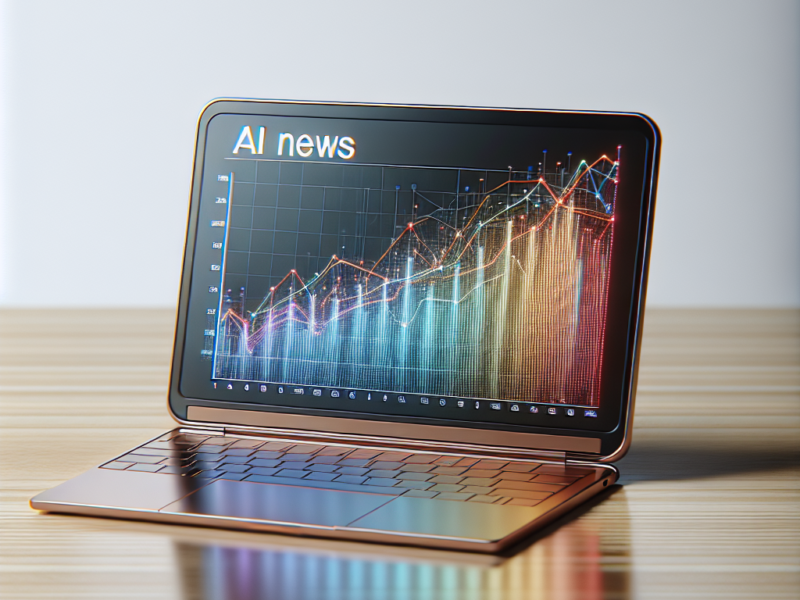In an era defined by rapid technological advancements, the proliferation of data has reshaped the landscape of nearly every industry. With projections suggesting that the global data volume will reach 175 zettabytes by 2025, the significance of data science continues to escalate. As we march into this data-driven future, artificial intelligence (AI) stands out as a pivotal force influencing data science’s trajectory. This article explores key trends in AI that are poised to define the future of data science.
1. Automation of Data Processes
One of the most profound trends in the future of data science is the increasing automation of data processes. By leveraging AI algorithms, organizations can automate data cleaning, preprocessing, and analysis—tasks that were traditionally labor-intensive and time-consuming. Tools like autoML (automated machine learning) facilitate the creation of machine learning models without extensive coding knowledge, democratizing access to data science capabilities and enabling non-experts to extract insights from data.
2. Enhanced Natural Language Processing
Natural Language Processing (NLP) continues to evolve, enabling machines to understand and interpret human language with a remarkable degree of accuracy. The rise of sophisticated language models, such as OpenAI’s GPT series and Google’s BERT, are transforming how we interact with data. Through advanced NLP, businesses can analyze unstructured data sources—like customer feedback, social media interactions, and online reviews—yielding valuable insights into public sentiment and market trends. As NLP technology becomes more accessible, data-driven decision-making will increasingly focus on qualitative insights alongside quantitative data.
3. Ethical AI and Governance
As AI systems become integral to data science, the need for ethical standards and guidelines is more pressing than ever. Organizations are recognizing the importance of fairness, accountability, and transparency in AI models, driving the demand for ethical AI frameworks. This trend is giving rise to meticulous data governance strategies that not only ensure compliance with regulations (such as GDPR) but also prioritize responsible data usage and algorithmic decision-making. Ethical considerations will shape the development of AI solutions, fostering trust and credibility among users.
4. Data Privacy and Security
With the vast amounts of data being collected, data privacy and security remain top concerns for organizations and consumers alike. AI technologies can enhance data protection through advanced techniques like federated learning, which allows models to train on decentralized data without exposing raw data. This shift enables organizations to leverage valuable insights while preserving user privacy and adhering to strict data protection regulations. The focus on secure data practices will be a crucial element of the future data landscape.
5. Real-Time Analytics
The demand for real-time analytics is skyrocketing as businesses seek to make data-driven decisions faster than ever. AI alongside big data technologies enables processing vast volumes of data in real time, turning it into actionable insights almost instantaneously. Industries such as finance, healthcare, and e-commerce rely heavily on real-time data analytics to detect fraud, monitor patient health, or optimize supply chains. The continued evolution of streaming data platforms and AI algorithms will ensure that real-time analytics remains a cornerstone of data science.
6. Cross-Disciplinary Collaboration
The future of data science will see an increasing emphasis on cross-disciplinary collaboration. As organizations recognize the value of diverse perspectives, interdisciplinary teams comprising data scientists, domain experts, and stakeholders will become more common. This collaboration enables a comprehensive understanding of data context and interpretation, leading to richer insights and more effective solutions. AI will facilitate this trend by providing collaborative tools that enhance teamwork and communication across different expertise and industries.
7. Quantum Computing
While still in its infancy, quantum computing holds the potential to revolutionize data processing and analysis. Quantum algorithms could dramatically accelerate computational tasks and enhance optimization processes, allowing data scientists to solve complex problems that are currently intractable. As this technology matures, we can expect a new frontier in data science where quantum capabilities unlock unprecedented analytical power.
Conclusion
The future of data science is intricately linked with AI advancements that pave the way for greater efficiency, ethics, and insight. As automation, real-time analytics, ethical governance, and cross-disciplinary collaboration redefine the field, organizations that embrace these AI trends will be well-positioned to thrive in an increasingly data-centric world. By staying ahead of these trends, data scientists can harness the transformative power of AI and lead the way to innovative solutions that drive progress across industries. The journey into this new landscape promises to be as challenging as it is exciting, and there is no doubt that the confluence of AI and data science will shape the future in remarkable ways.










